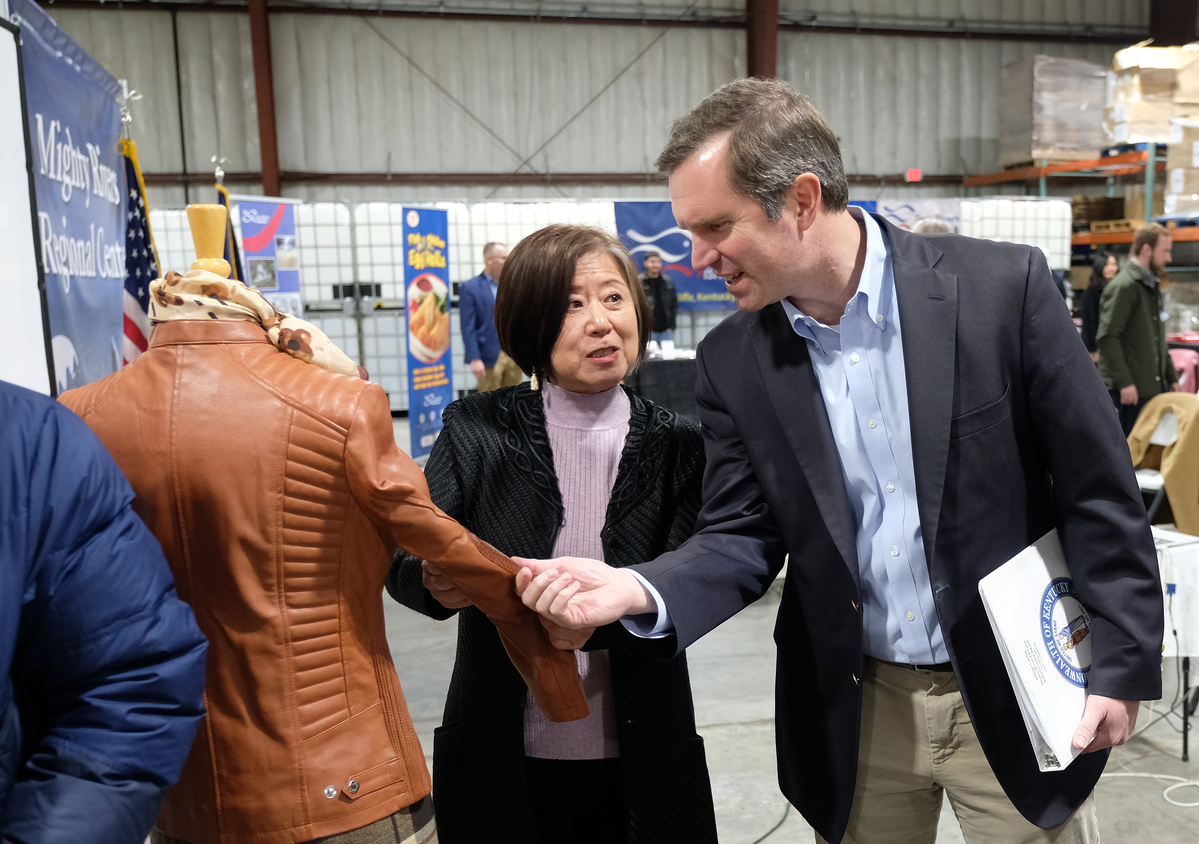Fish story: Chinese American woman's carp business back above water
By MAY ZHOU in Houston | chinadaily.com.cn | Updated: 2025-02-06 13:00

When Angie Yu first went to Kentucky to set up a business to turn invasive Asian carp into a profitable business, she was planning to return to her home in Los Angeles in five years.
She settled in Wickliff, Kentucky, a small town with a population of 700 in 2013; established Two Rivers Fisheries; and along with her husband became the first and only Chinese family to reside in the rural town.
Asian carp, which was imported into the United States in the 1970s to clean algae in commercial ponds, spilled into the freshwater system and flourished. It thrived so well that some of the fish would jump into boats. The carp also have crowded out native species and upset the ecological balance.
Americans don't eat Asian carp because the flesh is unfamiliar. On top of that, the numerous bones typical in Asian carp make processing difficult.
Yu, who had previous experience turning unwanted fish parts into useful products, decided to bring Asian carp to people outside the US who view it as a prized protein source.
She started from scratch by first and foremost recruiting fishermen to catch Asian carp. She learned how to get support from and work with the local governments. Yu also explored how to process the fish.
Six years later, in 2019, Yu launched the 64-arce International Fisheries Industrial Park in Ballard County. She successfully attracted seven committed investors—mostly from China—who would process the fish into food, fertilizer and dog treats.
Every part of the fish would be used with zero waste based on her principal to "reduce, reuse, redefine" the invasive fish. Her Two Rivers Fisheries functioned to purchase carp from fishman and conduct the initial process.
In 2019, her company had grown to process 7 million pounds of carp and became the largest fish exporter in the state of Kentucky. With a complete value chain in place, Yu believed her mission was close to being accomplished, and she would soon move back to Los Angeles.
As the production chain was lining up, and the business was poised to grow, the COVID-19 pandemic hit.
Prior to the pandemic, 90 percent of Yu's products were exported. The pandemic put a full stop to her export business. The only business she was able to maintain was to provide fish bait for lobster in Maine and crawfish in Louisiana.
"For the first time in my life, I had to borrow money from family and friends, especially my son, to pay for electricity and pay my employees," said Yu.
Facing such financial strain and difficulties, Yu did think of quitting, but friends and business partners encouraged her to stay. "People told me that if I shut it down, I will never be able to open it again," she said.
Yu also had help from the local community. The electrician did jobs at the factory despite her inability to pay. The landlord allowed her to be late on rent payment for more than a year so that was able to house some of her employees to keep the operation running.
The pandemic and trade war between the US and China drove the industrial park to the ground. Only one of the seven investors managed to remain, producing dog and cat treats for American consumers.
























